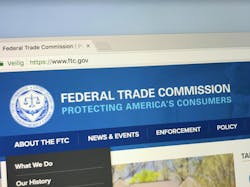On April 23, the Federal Trade Commission (FTC) issued a final rule to promote competition. In a press release, the FTC stated that noncompetes will be banned nationwide, protecting workers' freedom to change jobs, increasing innovation, and fostering new business formation.
Some private practices that have heavily invested in physician training use noncompete agreements to compete with larger hospital systems, said American Medical Association (AMA) trustee Ilse Levin in last year’s AMA annual meeting. At the same time, noncompetes can limit opportunities for career advancement.
According to a panel discussion hosted by the Hopkins Business of Health Initiative, 45 percent of healthcare workers are subject to noncompetes versus 20 percent of workers from other industries. The discussion noted that increased consolidation has had negative consequences for these agreements on mobility and wages. Additionally, it is believed that more competition may result in lower costs and improved quality of care.
“Noncompete clauses keep wages low, suppress new ideas, and rob the American economy of dynamism, including from the more than 8,500 new startups that would be created a year once noncompetes are banned,” said FTC Chair Lina M. Khan, in a statement.
The American Hospital Association (AHA) opposed the final rule. Chad Golder, AHA general counsel and secretary, said in a statement, “The FTC’s final rule banning non-compete agreements for all employees across all sectors of the economy is bad law, bad policy, and a clear sign of an agency run amok. The agency’s stubborn insistence on issuing this sweeping rule — despite mountains of contrary legal precedent and evidence about its adverse impacts on the health care markets — is further proof that the agency has little regard for its place in our constitutional order.”
However, the American Academy of Family Physicians (AAFP) expressed feeling encouraged by the final rule. “We are…encouraged to see that the FTC intends for this ban to extend to many nonprofit entities. Nonprofit health systems often have significant financial assets and employ a large portion of physicians and clinicians. They should not be permitted to continue to restrict patient access and physician choice in employment,” Steven P. Furr, M.D., AAFP president, said in a statement. Furr added that the AAFP is hopeful for more collaboration in retaining physicians.
According to the law firm Nelson Mullins, the rule doesn’t apply to non-profits. “The basis for the rulemaking is Section 5 of the FTC Act, which doesn’t apply to non-profits,” lawyers wrote in their company blog.
However, partners at Husch Blackwell advised that it boils down to business practices, “If entities claiming tax-exempt status are, in fact, profit-making enterprises based on their actual operations and goals, those 501(c) tax-exempt entities are still covered by the final rule.”
According to the press release, “Under the FTC’s new rule, existing noncompetes for the vast majority of workers will no longer be enforceable after the rule’s effective date.” The FTC offered alternatives to noncompetes that protect investments, such as trade secret laws and non-disclosure agreements (NDAs).
With the final rule, the FTC anticipates new business formation growth of 2.7 percent yearly, higher earnings for workers, and lower healthcare costs. The final rule will become effective 120 days after publication in the Federal Register, per the FTC.


